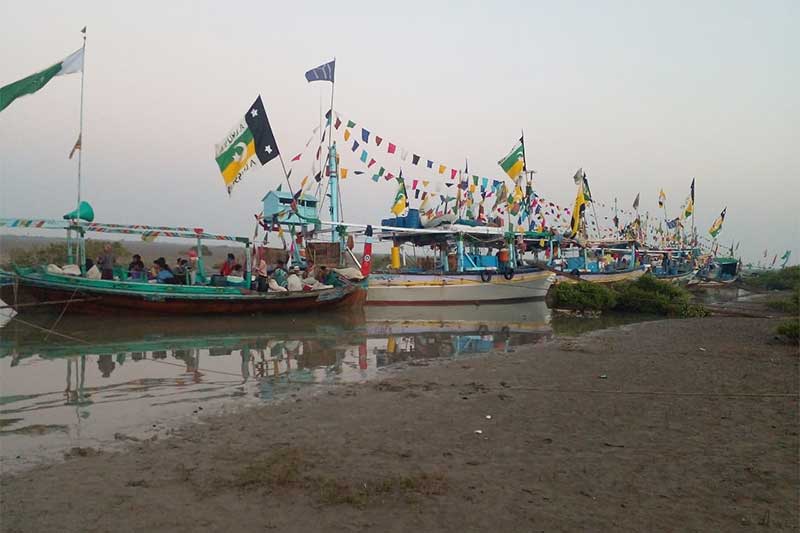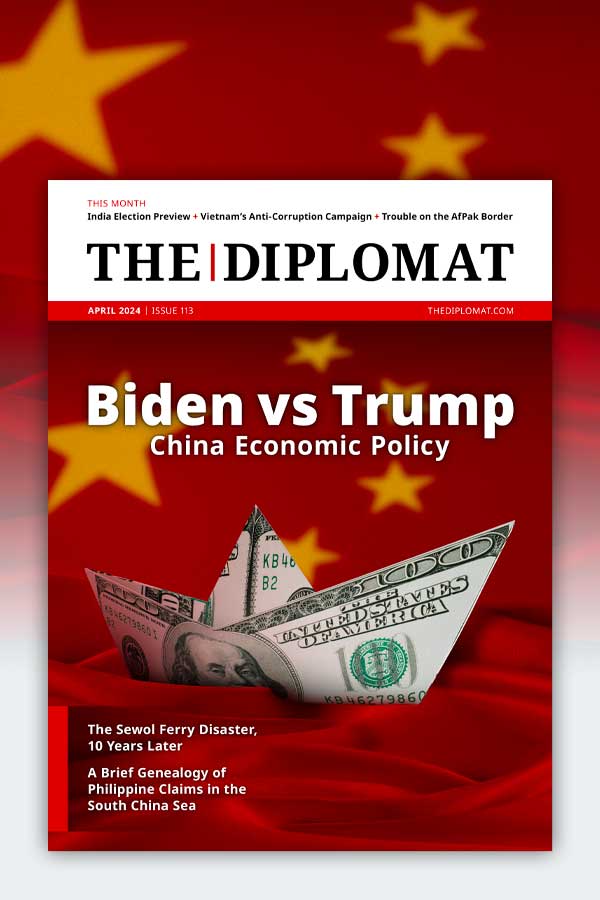| Welcome to the latest issue of Diplomat Brief. This week our top story explores the restructuring of China’s military – the second major overhaul in less than 10 years. We also have an interview with Malika Bahovadinova, a postdoctoral scholar at the University of Amsterdam, on Central Asian migration to Russia and the new pressures coming to bear following the Crocus City Hall attack. |
| Story of the week | ![[object Object]](https://thediplomat.com/diplomat-brief/2024/vol17/images/feature.jpg?v=1) | Security RIP, SSF: Unpacking the PLA’s Latest RestructuringWhat Happened: On April 19, China’s top leader, Xi Jinping, presided over a ceremony inaugurating a new branch of the People’s Liberation Army (PLA): the Information Support Force (ISF). In the state media report on the event, it was revealed that the new force was part of a much larger reconfiguration of the PLA. One entire service – the erstwhile PLA Strategic Support Force – has been disbanded, with its functions divided up into three new branches: the ISF, the Cyberspace Force, and the Aerospace Force. Under the new structure, the PLA now consists of “four services and four arms.” Our Focus: The announcement came as a surprise, given that the SSF was less than 10 years old; it was created as part of the last major overhaul of the PLA back in 2015. The SSF “was tasked not only with information and communication technology but also with aerospace, cyber operations, and electronic warfare,” Ying Yu Lin and Tzu-Hao Liao explain in their analysis for The Diplomat. “The primary rationale behind the restructuring appears to be addressing concerns stemming from the SSF’s previous mandate, which encompassed a wide array of responsibilities, potentially hindering operational effectiveness.” The three new branches will not only allow for more focused use of resources but also make it easier to find a commander with force-specific expertise. What Comes Next: The reorganization highlights China’s quest to keep pace with the “informatization” of military technology, which requires the use of offensive and defensive capabilities in IT, cyberspace, and outer space. The “four services and four arms” structure is supposed to streamline China’s abilities in each of these areas. But in the short term, Lin and Liao point out, “With significant personnel reshuffling at the senior levels and the organizational overhaul the PLA has undergone, the timeframe required for the force to attain full operational capability is uncertain.” That could potentially mean a period of adjustment during which China will be less comfortable with the prospect of armed conflict. Read this story |
| Behind the News | INTERVIEW Malika BahovadinovaMalika Bahovadinova, a postdoctoral scholar at the University of Amsterdam, on the targeting of Tajikistani nationals in Russia: “Tajikistan citizens tend to be the most marginalized of minority groups in Russia, including in their treatment by law enforcement. As a result, the collective punishment of migrant workers in the aftermath of the tragic attack did not come as a major surprise, unfortunately.” Read the interview |
| This Week in Asia | Northeast Asia Another Fatal Military Accident in JapanEarlier this week, two H-60K anti-submarine warfare helicopters crashed during nighttime training near Japan’s Izu Islands, leaving one crewmember confirmed dead and seven missing. The accident was the latest in a string of fatal aerial accidents involving Japan’s Self-Defense Forces, with five such incidents in the last two years. With the SDF ramping up its defense diplomacy, some experts are concerned the force is overtaxed – with training and safety suffering as a result. Find out more | South Asia Iran-Pakistan Ties Move ForwardIranian President Ebrahim Raisi is visiting Pakistan this week, just days after an Israeli strike in Iran topped off a series of attacks exchanged between the two bitter rivals. While Raisi’s visit attempted to accentuate the positive – taking an upbeat tone toward trade and a long-pending gas pipeline – things are not so simple for Pakistan. While its pro-Palestine position is clear, Islamabad can ill-afford to alienate the United States by offering full support to Iran in a conflict with Israel. Find out more | Southeast Asia Indonesia’s Top Court Quashes Election ChallengesIndonesia’s Constitutional Court this week rejected two appeals lodged by losing presidential candidates, effectively upholding Defense Minister Prabowo Subianto’s landslide victory at the election on February 14. Anies Baswedan and Ganjar Pranowo, who won just 25 percent and 17 percent of the vote, respectively, to Prabowo’s 58 percent, claimed that the result was swayed by fraud and widespread state interference. They questioned the legitimacy of the Constitutional Court decision that allowed President Joko Widodo’s eldest son to enlist as Prabowo’s vice presidential running mate, given that the court’s then-chief justice was the brother-in-law of the Indonesian leader. In its decisions, which cannot be appealed, the court said that the pair had not provided enough evidence to support their claims, opening the way for Prabowo to take office in October. Find out more | Central Asia Is This a New Era of Relations Between Turkmenistan and Afghanistan?In 2024, Ashgabat got serious about engaging with the Taliban government in Afghanistan. While hewing to its long-stated policy of “positive neutrality,” Turkmenistan has nevertheless sought to influence its neighbor via engagement, particularly when it comes to regional water sharing and energy projects. The country’s efforts regarding Afghanistan are driven by pragmatic goals to maximize the benefits of cooperation and minimize the risks of living next to a militant group-turned-government. Find out more |
| Visualizing APAC |  | Fishermen in Pakistan and India face pressure from climate change, dwindling catches – and India-Pakistan tensions. See the full picture |
| Word of the Week | Economy #ZaSaltanatThe trending hashtag – meaning “for Saltanat” in Kazakh – references the victim in a brutal murder case that has shone a spotlight on domestic violence in Kazakhstan. Find out more |
|  |

![[object Object]](https://thediplomat.com/diplomat-brief/2024/vol17/images/feature.jpg?v=1)

